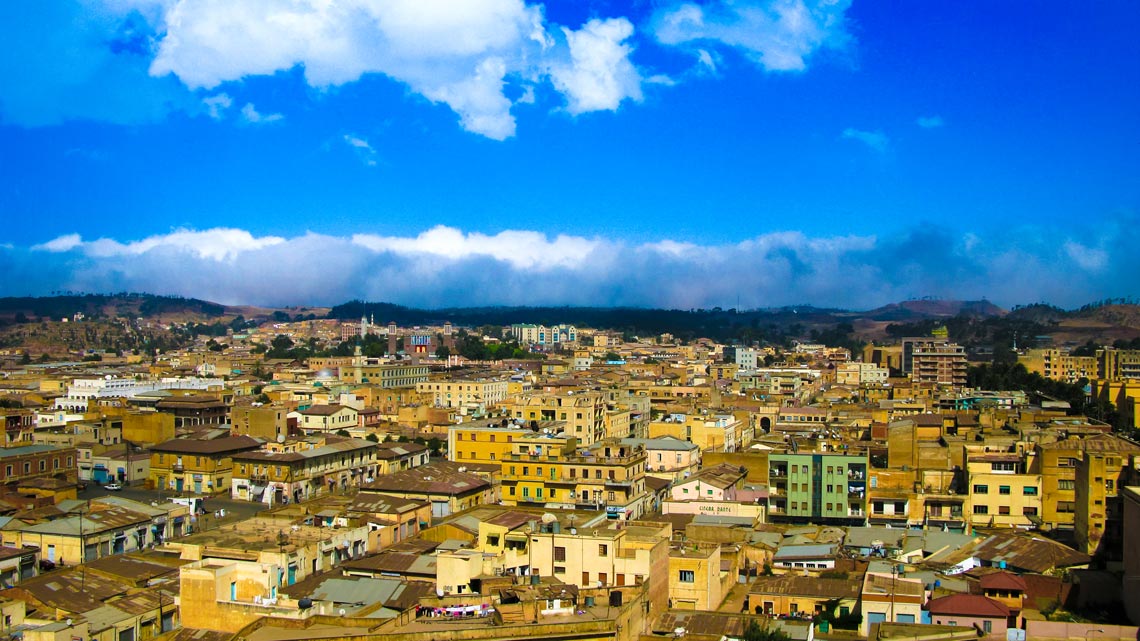Marktonderzoek in Eritrea, Afrika

Eritrea is a word derived from the Latin “Red Sea.” It is also the name given to the small coastal nation found on the Red Sea in the Horn of Africa. The bordering countries of Eritrea are Sudan, Ethiopia, and Djibouti.
Eritrea won its independence from Ethiopia in 1993 but has since remained one of the poorest countries in Africa. This state is a result of reoccurring droughts, famines, and war. Its major languages are Tigrinya, Tigre, Arabic, and English, and the main religions are Islam and Christianity.
Belangrijkste industrieën
Eritrea’s primary industries are textiles, food processing, agriculture, mining, fishing, and salt. Beyond this, there is little industrial activity. Agriculture is the population’s livelihood. Other sectors are growing, such as marine-related activities and services.
Buurten
Asmara, also known as Asmera, is the capital and largest city of Eritrea. The city’s streets are clean and void of traffic pollution, and it’s known for its beauty and gives the visual of a 20th-century souvenir. Other important cities are the ports of Massawa and Assab.
Trends
Eritrea has beautiful colonial architectural structures, some of the best in the world. Its culture remains diverse and boasts a ‘melting pot’ of nine different ethnic groups, each with its separate traditions. The country is harmonious, and these different groups appreciate and respect each other.
Strengths of the Market
The strength of Eritrea’s economy is in its unexploited natural resources. There is future potential in the oil industry of this country. Speculation is rife that the Red Sea has oil deposits beneath it.
Another source of market strength comes from the Bisha copper mine. This mine also has gold deposits.
Consumentenbasis
Essential consumer goods are both a necessity and a scarcity in Eritrea due to recurrent border closures with neighboring Ethiopia and Sudan. There has been an inadequate supply of essential consumer goods such as potable water. Eritreans also experience shortages of cooking fuels and electricity. Yet, more staple goods have made it past the border restrictions from Ethiopia. The result is lower consumer prices.
The authorities in Eritrea have denied the existence of food shortages. They have also refused outside help. Thus, illegal food imports are on the rise, sold at extravagant prices most times.
Reasons to grow your business in Eritrea
Based on published facts and figures, you have many reasons to grow your business in Eritrea. This country struggles to attract foreign investment for various reasons. It faces challenges like government control and corruption and a small labor force. Eritrea has also experienced mass migration. Then, there is the sad state of affairs caused by recurrent border conflict.
This state of affairs has led to the government’s initiative of creating a Free Zone Authority in Massawa. The aim is to attract new investors in the areas of energy, tourism, and fishing. There is investment potential in the country’s mineral resources. Eritrea has potash, copper, gold, silver, and zinc.
Are you interested in investing in mining the country’s natural resources? It carries a vast potential for business growth.
Eritrea has a strategic position on the Red Sea coast. It provides perfect exposure to one of the world’s busiest shipping lanes. Eritrea can establish linkages to other areas of the region, which is ideal for trade.
About Market Research in Eritrea
Have you made your decision? Have you decided to invest in the Eritrea market? We are here to guide you through the process. We use Qualitative, Qualitative, and Strategy Research. We also do surveys to bring you the hard facts that will assist you in making the most informed decision.
Our statistic results are reliable. We give you the best Strategy research on the market. It will help you discover opportunities for your business.


